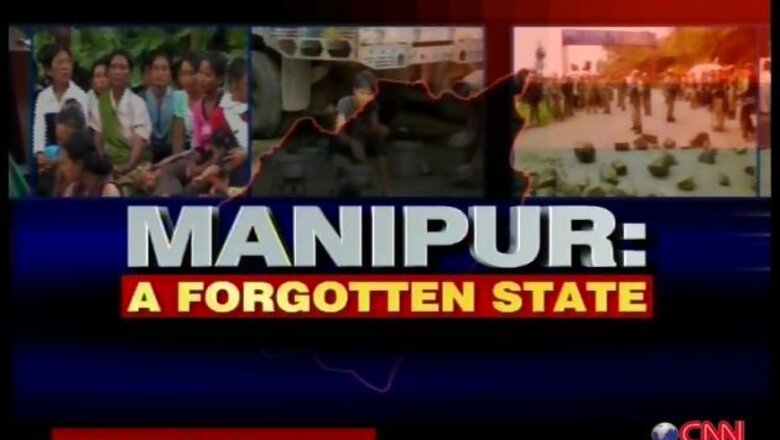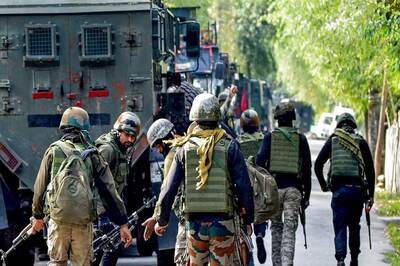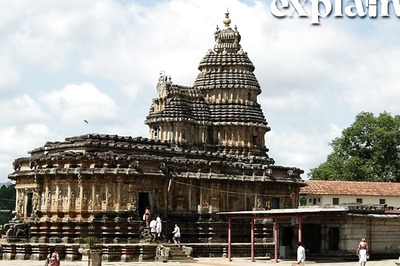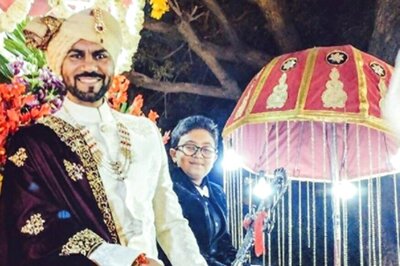
views
In a 2009 interview, historian Lokendra Arambam, former President of the Apunba Lup (a conglomerate of 32 civil society organisations in the state of Manipur) told me that when it comes to Manipur, "the government of India is interested in the land and not in the people." In 2006, just three years before Arambam's remark, Henry V Jardine, US Consulate General, Calcutta, returned from Manipur, which borders Myanmar, and sent a confidential and detailed cable to Washington DC (Source: The Hindu, March 21, 2011):
"In ConGen's many interactions, even with some government officials, a reoccurring comment was that Manipur was less a state and more a colony of India. The general use of the AFSPA (Armed Forces Special Powers Act) meant that the Manipuris did not have the same rights of other Indian citizens and restrictions on travel to the state added to a sense of isolation and separation from the rest of India 'proper'. The overwhelming presence of military, paramilitary and police officers contributed to the impression that Imphal was under military occupation. Several Manipuris argued that they had greater rights under the British Raj than under the present federation. The Indian civil servants were also clearly frustrated with their inability to stem the growing violence and anarchy in the state, feeling their efforts to effectively control the insurgencies was hamstrung by local politicians either in league with or at least through corruption, helping to finance the insurgents." (emphasis added)
In all these years after Arambam or Jardine's remark, not much has changed in Manipur. There are at least 15 militant outfits that remain active in the state. In the last 5 years (2007-2011) 1,506 people have been killed in the state. Out of these (government claims) 1,011 are militants, 89 from security forces and 406 civilian deaths. Most legislative and administrative policies are made with the security establishment's concerns in mind.
The primary lens through which the region is viewed is a military one. The Armed Forces (Special Powers) Act that gives the Army sweeping powers to arrest and shoot anyone on suspicion and not get prosecuted still remains in place. In 2009, I interviewed retired High Court Judge C Upendra in Imphal. Between 1996 and 2007, Upendra headed inquiries into 12 instances of extrajudicial killing, rape or murder in Manipur. He found the security forces guilty of excesses in every single case.
But no action has ever been taken against those involved. Based on his findings, Judge Upendra candidly accused the security forces of acting with impunity. "They do whatever they like, they have no regard for the law of the land", he emphasised. He insists that the root cause of these violations is the draconian AFSPA that was imposed in Manipur in 1980. All the cases that Upendra investigated await closure and the rape and murder of Manorama is the only one that has any recall value. This is the case that features in every report on army atrocities in Manipur. The rest of the cases are usually only part of the count, mere statistics. And that it why it is important for New Delhi to work on its apathy, refocus and engage on the region.
According to the Human Development Index, Manipur remains in the lowest rung of the infrastructure ladder. This is not difficult to find out in a state that has on an average 4-5 hours of electricity a day. There are local militias calling the shots in various places and in many places the ideology of resistance has been replaced by the convenience of a money-sharing arrangement between local militias and the bureaucracy.
In the face of false promises of corrective action Manipur stands helpless. In 2011, there was a 121 day economic blockade and in 2010 the economic blockade was carried out for 68 days. In 2011, the Sadar Hill's District Demand Commitee called for a blockade demanding that the Kuki tribal majority area be converted into a full-fledged district. The United Naga Council (UNC) opposed that and called for a counter blockade. In 2010, the blockade was called by the UNC to protest elections to the Autonomous District Councils.
Efforts to build bridges between people staying in the valley and hills of Manipur have been few and far between. The powerful middle classes on both sides seem to take advantage. Against the backdrop of all these, Manipur is headed for the 10th Assembly election. What are the promises that this election brings with it and how much does New Delhi care?
It is best captured in an article written by Imphal Free Press Editor Pradip Phanjoubam (in the context of the economic blockade in the state). If Manipur had 12 Member of Parliaments instead of two, we would have been wooed. But as long as democracy remains a numbers game, minority voices will remain unheard. And when your democratic voice is not heard, you resort to undemocratic methods. That's the prime reason for the insurgency - it's a language that's heard", says Phanjoubam.
The first Assembly elections in Manipur was held in 1967. But much before that in 1948, Manipur had a legislative assembly that was elected on adult franchise. It was a first in India. In 1949, the king of Manipur was allegedly forced to sign an agreement (in Shillong, under virtual house arrest) and be a part of India. Sardar Vallabhbhai Patel, then Indian Home Minister, had no hesitation in saying "Isn't there a brigadier in Shillong?" in response to reports that the native state of Manipur might be reluctant to merge fully with the Indian Union (Baruah/Durable Disorders). Once Manipur was merged with the Indian Union, the State Assembly with 53 seats was dissolved. Manipur was turned into a Part C category state in 1949. The State continued to be administered by the President through a Chief Commissioner or a Lieutenant Governor who acted as his agent.
In 63 years after it was merged with the Indian union Manipur still stays at the margin of the so-called Indian growth story. Yet when it comes to elections ironically the voting percentage remains high. In the last Assembly elections in 2007, 86 out of every 100 people in Manipur cast their votes. Manipur has a total electorate of about 17 lakh voters. This year's Assembly election too might witness this trend of a high poll percentage.
Far removed from all this, at the Jawaharlal Nehru Hospital in Imphal, 38 year-old Irom Sharmila, who has been on an indefinite fast against the AFSPA for the last 11 years, will witness the the 60 Assembly constituencies go to polls on January 28. Forced-fed by a tube, Sharmila will be away from all election analysis and all election punditry.
Main issues:
Unemployment
Corruption
Absence of civic liberties
Economic blockades
Territorial integrity of the state
Naga People's Front fighting elections
Repeal of Armed Forces (Special Powers) Act 1958


















Comments
0 comment